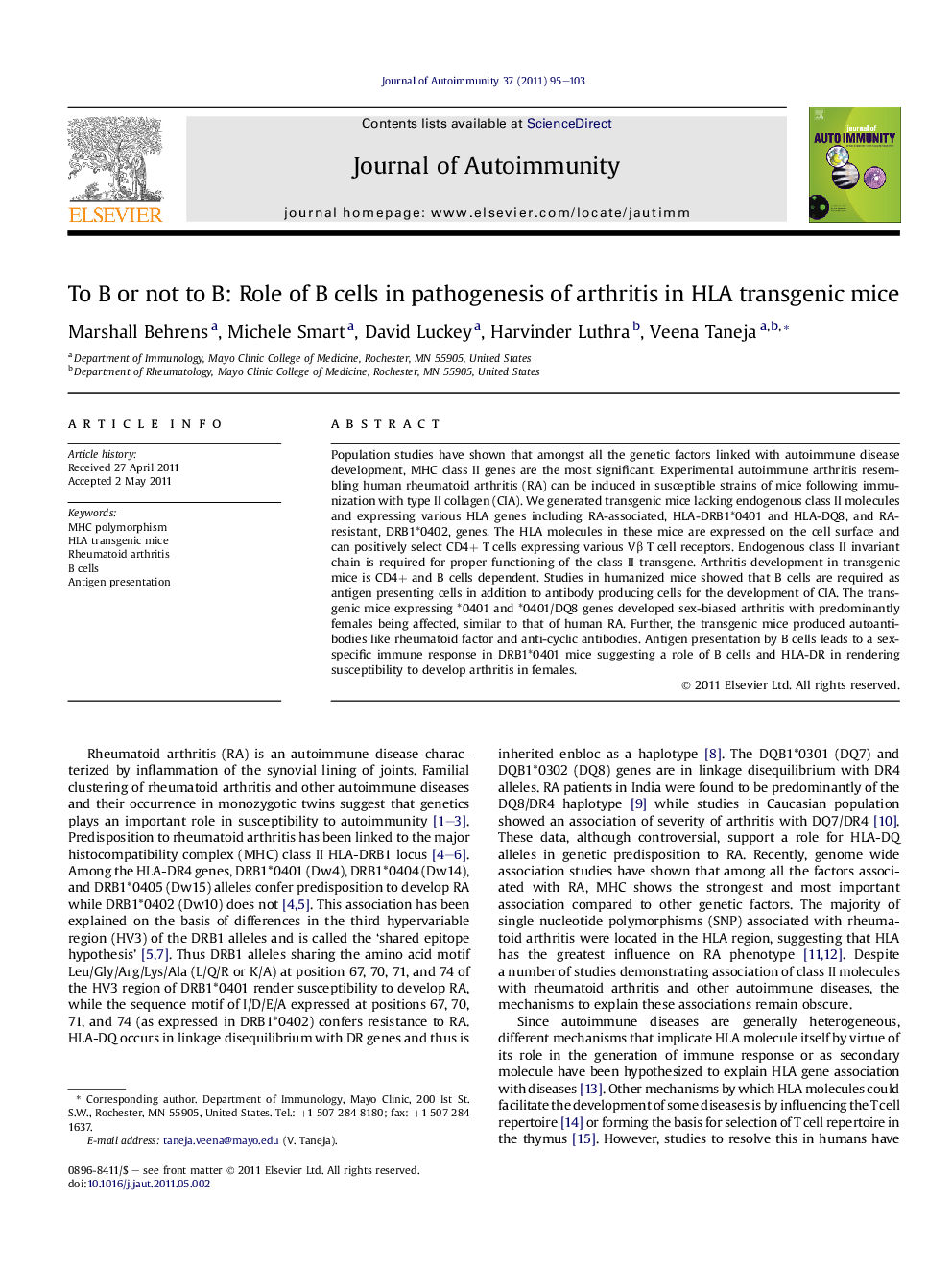| Article ID | Journal | Published Year | Pages | File Type |
|---|---|---|---|---|
| 3367967 | Journal of Autoimmunity | 2011 | 9 Pages |
Population studies have shown that amongst all the genetic factors linked with autoimmune disease development, MHC class II genes are the most significant. Experimental autoimmune arthritis resembling human rheumatoid arthritis (RA) can be induced in susceptible strains of mice following immunization with type II collagen (CIA). We generated transgenic mice lacking endogenous class II molecules and expressing various HLA genes including RA-associated, HLA-DRB1*0401 and HLA-DQ8, and RA-resistant, DRB1*0402, genes. The HLA molecules in these mice are expressed on the cell surface and can positively select CD4+ T cells expressing various Vβ T cell receptors. Endogenous class II invariant chain is required for proper functioning of the class II transgene. Arthritis development in transgenic mice is CD4+ and B cells dependent. Studies in humanized mice showed that B cells are required as antigen presenting cells in addition to antibody producing cells for the development of CIA. The transgenic mice expressing *0401 and *0401/DQ8 genes developed sex-biased arthritis with predominantly females being affected, similar to that of human RA. Further, the transgenic mice produced autoantibodies like rheumatoid factor and anti-cyclic antibodies. Antigen presentation by B cells leads to a sex-specific immune response in DRB1*0401 mice suggesting a role of B cells and HLA-DR in rendering susceptibility to develop arthritis in females.
